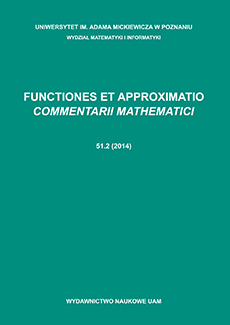Abstract
In this paper, we study representations of real numbers in the positional numeration system with negative base, as introduced by Ito and Sadahiro. We focus on the set $\mathbb{Z}_{-\beta}$ of numbers whose representation uses only non-negative powers of $-\beta$, the so-called $(-\beta)$-integers. We describe the distances between consecutive elements of $\mathbb{Z}_{-\beta}$. In case that this set is non-trivial we associate to $\beta$ an infinite word $\boldsymbol{v}_{-\beta}$ over an (in general infinite) alphabet. The self-similarity of $\mathbb{Z}_{-\beta}$, i.e., the property $-\beta \mathbb{Z}_{-\beta}\subset \mathbb{Z}_{-\beta}$, allows us to find a~morphism under which $\boldsymbol{v}_{-\beta}$ is invariant. On the example of two cubic irrational bases $\beta$ we demonstrate the difference between Rauzy fractals generated by $(-\beta)$-integers and by $\beta$-integers.
Citation
Petr Ambrož. Daniel Dombek. Zuzana Masáková. Edita Pelantová. "Numbers with integer expansion in the numeration system with negative base." Funct. Approx. Comment. Math. 47 (2) 241 - 266, December 2012. https://doi.org/10.7169/facm/2012.47.2.8
Information





